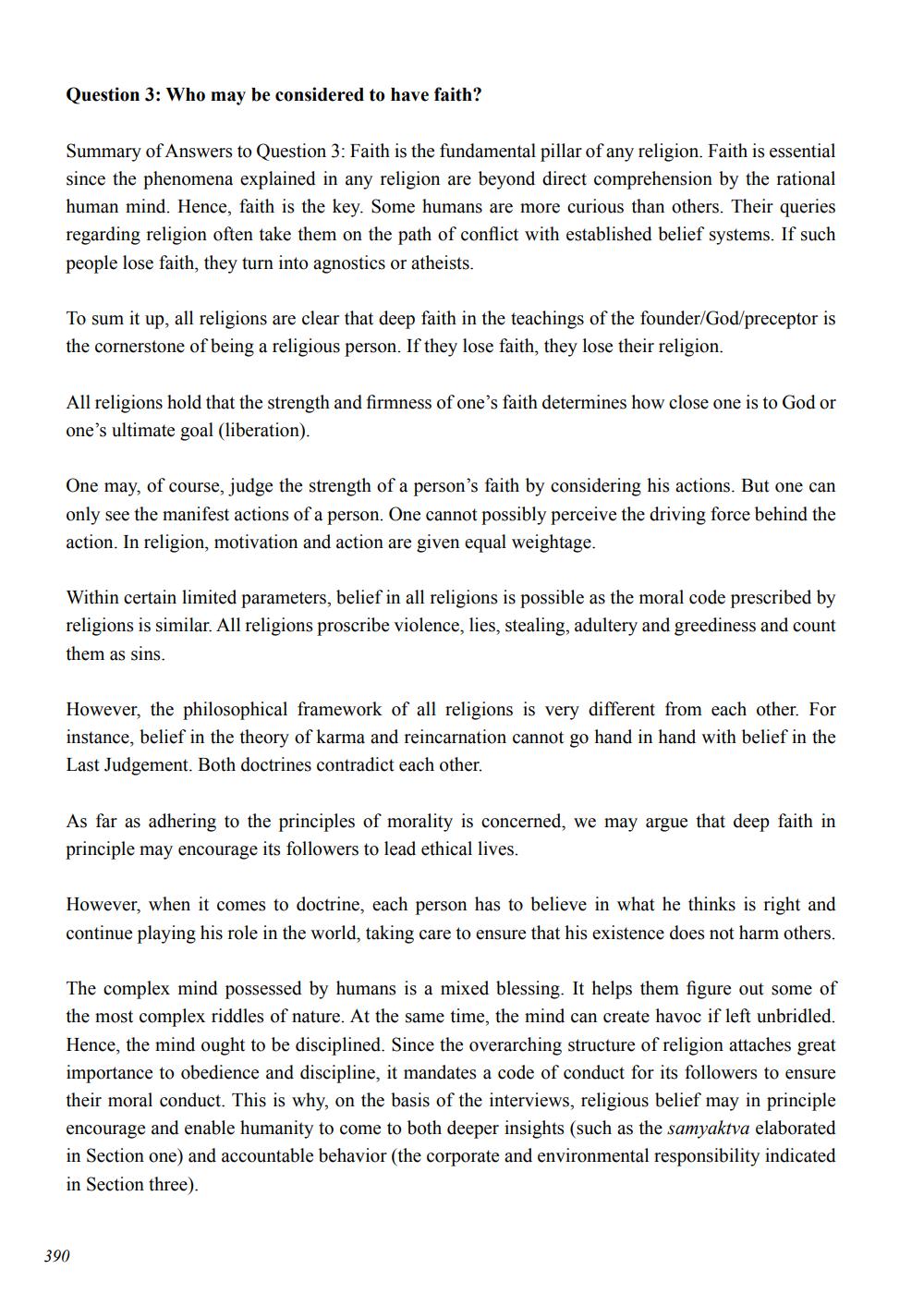________________
Question 3: Who may be considered to have faith?
Summary of Answers to Question 3: Faith is the fundamental pillar of any religion. Faith is essential since the phenomena explained in any religion are beyond direct comprehension by the rational human mind. Hence, faith is the key. Some humans are more curious than others. Their queries regarding religion often take them on the path of conflict with established belief systems. If such people lose faith, they turn into agnostics or atheists.
To sum it up, all religions are clear that deep faith in the teachings of the founder/God/preceptor is the cornerstone of being a religious person. If they lose faith, they lose their religion.
All religions hold that the strength and firmness of one's faith determines how close one is to God or one's ultimate goal (liberation).
One may, of course, judge the strength of a person's faith by considering his actions. But one can only see the manifest actions of a person. One cannot possibly perceive the driving force behind the action. In religion, motivation and action are given equal weightage.
Within certain limited parameters, belief in all religions is possible as the moral code prescribed by religions is similar. All religions proscribe violence, lies, stealing, adultery and greediness and count them as sins.
However, the philosophical framework of all religions is very different from each other. For instance, belief in the theory of karma and reincarnation cannot go hand in hand with belief in the Last Judgement. Both doctrines contradict each other.
As far as adhering to the principles of morality is concerned, we may argue that deep faith in principle may encourage its followers to lead ethical lives.
However, when it comes to doctrine, each person has to believe in what he thinks is right and continue playing his role in the world, taking care to ensure that his existence does not harm others.
The complex mind possessed by humans is a mixed blessing. It helps them figure out some of the most complex riddles of nature. At the same time, the mind can create havoc if left unbridled. Hence, the mind ought to be disciplined. Since the overarching structure of religion attaches great importance to obedience and discipline, it mandates a code of conduct for its followers to ensure their moral conduct. This is why, on the basis of the interviews, religious belief may in principle encourage and enable humanity to come to both deeper insights (such as the samyaktva elaborated in Section one) and accountable behavior (the corporate and environmental responsibility indicated in Section three).
390




